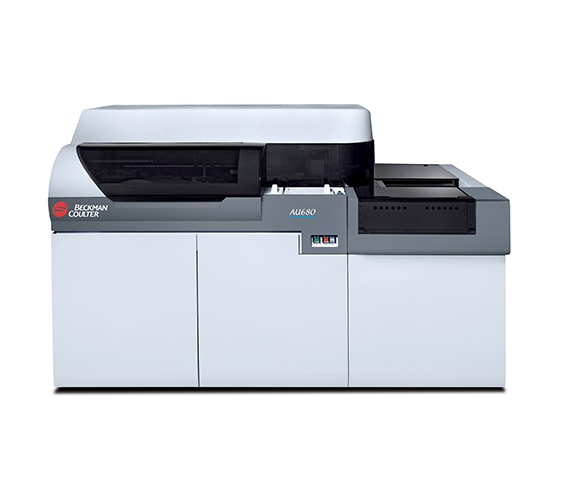|
|
Fully automated, random-access clinical chemistry system with STAT capability
|
|
|
Spectrophotometry and potentiometry
|
|
|
Endpoint, rate, fixed point and indirect ISE
|
|
|
Colorimetry, turbidimetry, latex agglutination, homogeneous EIA, indirect ISE
|
|
|
60 photometric tests + 3 ISE
|
|
|
800 photometric tests/hour; up to 1,200 with ISE
|
|
|
Serum, plasma, urine, whole blood (HbA1c) and other fluids
|
|
|
Racks with 10 samples each (barcodes on primary tubes and on racks); capacity of 150 samples; continuous loading
|
|
|
In primary and secondary tubes; diameter between 11.5 and 16.5 mm; height between 55 and 102 mm
|
|
|
Up to 22 positions for STAT samples, barcoded primary tubes
|
|
|
1–25 μL in 0.1 μL increments (1–25 μL for repeats)
|
|
|
60 positions for R1, 48 positions for R2; refrigerated: 4–12°C; handling of 3-shot reagents
|
|
|
R1: 15–250 μL; R2: 15–250 μL; in 1 μL increments
|
|
|
120–425 μL
|
|
|
Quartz cuvettes
|
|
|
Up to 8 minutes, 40 seconds
|
|
|
37°C
|
|
|
With rotating paddles after dispensing sample and reagent
|
|
|
Direct assay through the reaction cuvette (0–3.0 OD) mono and bichromatic measurements possible
|
|
|
13 different wavelengths between 340–800 nm
|
|
|
Comprehensive cleaning with detergents
|
|
|
Autocalibration, cooled calibrator positions; master calibration established by two-dimensional barcode on the reagent bottle (>3-point calibration)
|
|
|
Auto QC, cooled QC positions
|
|
|
Individual and profile test requisition via online, mouse, function keys or touch screen
|
|
|
Clot detection and crash prevention for sample and reagent dispenser
|
|
|
Full uni- and bi-directional communication possible
|
|
|
Windows 7®
|
|
|
Sample number: 100,000 samples. Reaction data: 200,000 tests.
|
|
|
ANL 1,950x1,280x1,000
|
|
|
200 V; 208 V; 220 V; 230 V; 240 V; 50 Hz; 60 Hz/3.8 KVA
|
 English
English



